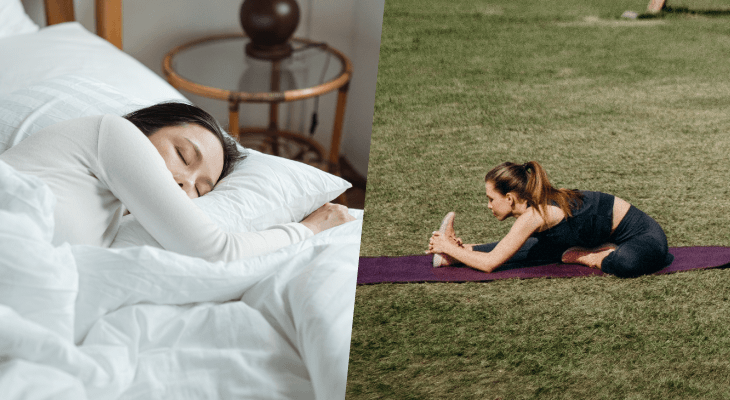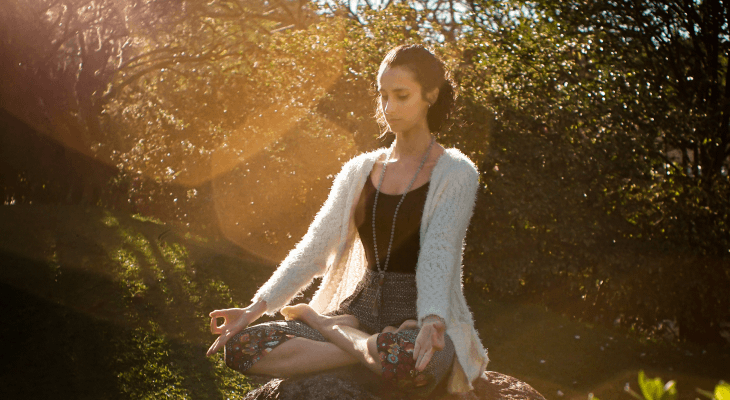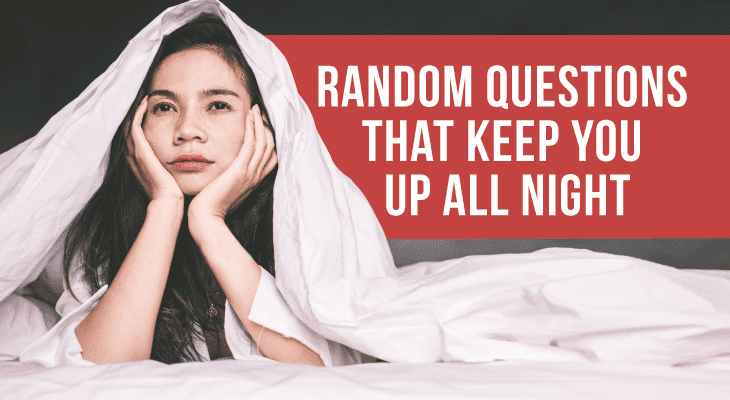Are You Constantly Tired? 7 Types of Rest You Actually Need
Do you still feel burned out even after hours of sleep? That’s because you’re not resting right. Here’s the secret to achieving full body restoration.
Published 08 Sep 2022

Do you constantly feel like you’re lacking energy? Did absolutely nothing the whole day and yet you still feel like you’re not well-rested? Perhaps you tried fixing your ongoing fatigue with additional sleep, only to wake up feeling more lethargic.
Newsflash, you’re actually not giving yourself the right kind of rest. In fact, sleep and rest are two completely different things that we often misconstrue as one. While being tired is part and parcel of a student’s life, getting the optimal amount of rest can ensure you’re performing at your best in your studies and beyond the classroom.
Here are 7 different types of rest to achieve full body restoration.
#1. Physical rest

Physical rest is the most common type of rest. However, physical rest has 2 components — passive and active resting.
Passive rest includes sleeping and napping. This is one way to restore your energy when you’ve spent the day going to classes, running errands or simply being active. Sleeping allows your body to repair cells, release hormones and help your brain get rid of toxic waste. In essence, our bodies can’t function without passive rest.
Active resting, on the other hand, includes restorative activities such as yoga, massages or daily stretching. These low-intensity movements help improve the body’s circulation and flexibility, giving your body time to recover after an intense day. Consider incorporating stretches before and after sleep as well as after spending long hours sitting in fixed positions.
#2. Mental rest

Ever experienced a brain fog? Constantly forgetful and struggling with concentration, and even have trouble sleeping at night from all the racing thoughts?
That’s an example of mental burnout or exhaustion from overusing your brain power. Mental burnouts can last for days and even weeks if not attended to.
Fortunately, all you need is short breaks in between tasks to prevent the cycle from happening. During study sessions, take a 15-minute break every couple hours to go on a quick walk, grab a snack or take a breather before you continue. This goes the same during short breaks in class or in between classes. When things get too overwhelming, give yourself a mental break by unplugging from technology entirely.
This way, you’ll be able to retrieve information and focus better in your daily activities.
#3. Emotional rest

You might think that taking an emotional rest requires you to stop feeling all ranges of emotions, but you couldn’t be more wrong. In fact, it’s the complete opposite.
Taking an emotional rest means giving yourself the chance to be vulnerable and experiencing your most authentic feeling. This includes being truthful when someone who genuinely cares about you asks you how you’re doing and making space for other emotions such as joy, grief, amusement, boredom and calmness to take place. If you’re not comfortable confiding in others, jot down how you feel to let go of the emotional weight you carry throughout the day.
So, if you’re the type that constantly carries emotional labour and keeps your emotions in check, then you’re definitely in need of an emotional rest.

#4. Sensory rest

Sensory overload refers to an overstimulation of your five senses. This causes you to feel anxious, irritable, restless and have trouble concentrating. For some people, even feeling textured textile and surfaces or hearing low-humming sounds and chatters in crowded spaces can tick them off.
If you live in a bustling city, a confined house with small children or you’re constantly staring into screens, you’re more likely to experience sensory overload.
In order for you to get the optimal sensory rest, remove yourself from the environment that’s triggering your senses or close your eyes for a few minutes to take a breather. You should also take note of things that are triggering such as notifications, brightness of your devices, loud music or loud voices. This way, you can be more proactive about your environment and make the necessary adjustments.
Apply for university with EduAdvisor
Secure scholarships and more when you apply to any of our 100+ partner universities.
Start now#5. Social rest

If you’re an introvert, you’d understand that socialising can be exhausting. This doesn’t mean that you’re around bad company; it just means that interacting and being expressive takes up a lot of energy.
The social rest you need involves spending a lot of time with yourself whether it's sleeping, indulging in your hobbies or simply spending time with that one person whom you can be your true self. You’ll be able to recharge and reconnect with yourself from these times of solitude. Better yet, learn to establish boundaries and decline offers to events that you know will be emotionally draining
If you’re an extrovert, spending time alone may not be the best idea, especially for a long period of time. This can cause you to feel drained and disconnected from yourself. Instead, you need to engage with positive and supportive people who can revive you rather than exhaust you. Consider planning a hang-out, trip, movie night or simply catch up with some friends.
#6. Creative rest

Are you constantly churning out creative ideas, whether it’s for an assignment or a social media post? It’s obvious that your brain is in gear at all times but too much of this can affect you too.
There’s only so much creative brainstorming you can do before you burn out. Consider taking some time off now and then by going on a walk in nature, reading books that you enjoy and surrounding yourself with inspiring things to replenish your creative resources.
Alternatively, simply turn your study space into a place that can feed your creative soul. This includes putting up posters, artwork, plants or revamping your room altogether to increase happiness, alertness and productivity. You’re more likely to be filled with innovative ideas when your environment is organised, lit up and flush with personality.

#7. Spiritual rest

If you’re feeling unfulfilled with what you’re doing in life and you’re questioning your purpose, then you are in need of a spiritual rest.
This means having the ability to connect beyond materialistic things and feel a deep sense of belonging, love, acceptance and purpose. Consider finding a way to connect with yourself and what you wish to accomplish. This can be done through community work such as volunteering, aiding in community service projects or simply spreading kindness along the way.
If you’re religious or have your own belief system, you can add prayers, meditation or affirmations in your daily routine. Finding what you’re meant to do and incorporating it in your daily routine will give you a sense of fulfilment and contentment as well as a way to avoid experiencing burnout.
Sleep alone can’t give you the full restoration that you need. While it’s good to incorporate these 7 types of rest in your daily routine, try not to wait till the last minute when you’re all burned out. In fact, start now! The key is to minimise the adverse effects and stop the cycle from happening.






